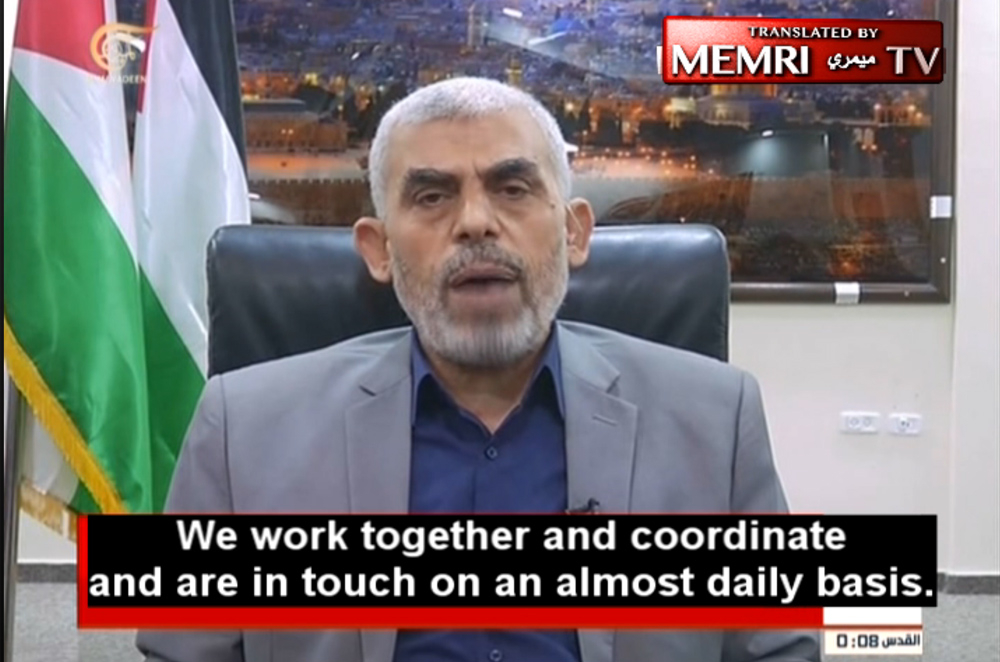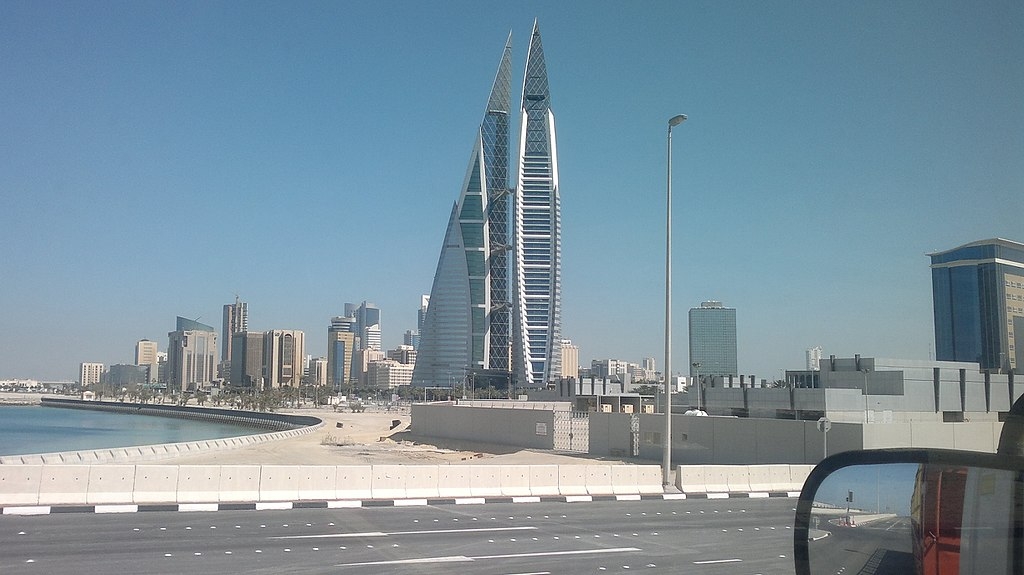In this mailing:
- Khaled Abu Toameh: The Iranian-Palestinian Plan to Thwart Trump's Peace Plan
- Shoshana Bryen: Making Real Arab-Israeli Peace at the Bahrain Conference
by Khaled Abu Toameh • June 5, 2019 at 5:00 am
Iran's support for Hamas and Islamic Jihad also needs to be seen in the context of Tehran's effort to undermine Arab states that have close relations with the Trump administration.
By boycotting the US-led conference in Bahrain, Mahmoud Abbas and his Palestinian Authority in the West Bank have placed themselves in the same league as Iran -- a country that despises them, deems them traitors and bankrolls their rivals, Hamas and Islamic Jihad, in the Gaza Strip.
Even so, Abbas and Palestinian Authority officials match Iran's incendiary rhetoric of violence at the US administration and its "Deal of the Century" by denouncing it as a conspiracy against Arabs and Muslims.
Iran's leaders have every reason to be satisfied with Abbas, whose every remark indirectly bolsters the Ayatollahs in their campaign to undermine any Arab and Muslim who wants to work with the US or make peace with Israel.

The leaders of Hamas and Islamic Jihad in the Gaza Strip are now offering themselves as a weapon in the hands of Iran to foil President Trump's peace plan. "No one should blame us for thanking Iran... Iran has provided us with rockets and money and helped us develop missiles that hit Tel Aviv," said Hamas leader Yahya Sinwar. Pictured: Sinwar in a 2018 television interview. (Image source: MEMRI video screenshot)
As the US administration prepares to roll out its long-awaited plan for peace in the Middle East, also known as the "Deal of the Century," Iran appears to be increasing its efforts to help its allies in the region try to thwart the plan.
Recently, Iran seems to have stepped up its political and military support for radical Palestinian groups that are staunchly opposed to any peace agreement with Israel. These groups, including Hamas and Islamic Jihad, do not recognize Israel's right to exist and are publicly committed to its destruction and replacement by an Iranian-backed Islamic state.
Iran, of course, has long shared the same ambition of destroying Israel and has never hesitated to make its position known to the world. In several statements during the past few decades, Iranian leaders have been frank about their wish that Israel be "a one-bomb country."
by Shoshana Bryen • June 5, 2019 at 4:00 am
Bahrain allows the Arab states to reach back, meet their obligations under UN Resolution 242 and restart the process the way the United Nations intended....
The UN did not offer Israel a nebulous "peace" but a concrete set of conditions to create "security": "Termination of all claims or states of belligerency and respect for and acknowledgment of the sovereignty, territorial integrity and political independence of every State in the area and their right to live in peace within secure and recognized boundaries free from threats or acts of force."
All of that was to be given to Israel not by the Palestinians, who did not and do not meet the requirements of a state, but the belligerents of 1948 and 1967. Egypt and Jordan have done so.
Some of the countries that have to make their peace with Israel will be in Bahrain, and UN Resolution 242 should be on the table. Fifty-two years late is not too late.

The U.S.-led economic conference set for Bahrain in late June needs only a few tweaks to emerge as a potentially dramatic event in the history of Middle East "peacemaking." Pictured: Manama, Bahrain. (Image source: Shahzad Ali/Wikimedia Commons)
The return of Israel to election mode is no reason to change the Trump administration's plans for the U.S.-led economic conference set for Bahrain in late June. The Palestinian decision to boycott the meeting certainly is no reason to change -- or cancel -- it. It needs only a few tweaks to emerge as a potentially dramatic event in the history of Middle East "peacemaking."
The modern phase of the Arab-Israel conflict began in the 19th century and solidified in 1948. It morphed by design or neglect into the Israeli-Palestinian conflict with the Oslo Accords in the 1990s. The Arab states escaped responsibility for wars they initiated in 1948, '56, '67, '73, and '82, leaving Yasser Arafat to figure out how to do what they never could -- either make peace with, or win a war against, the State of Israel.
|
|



No comments:
Post a Comment